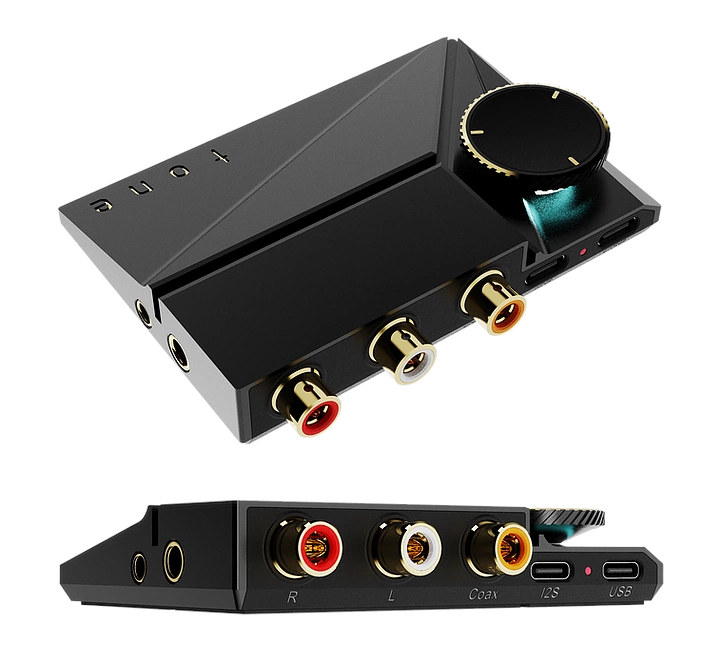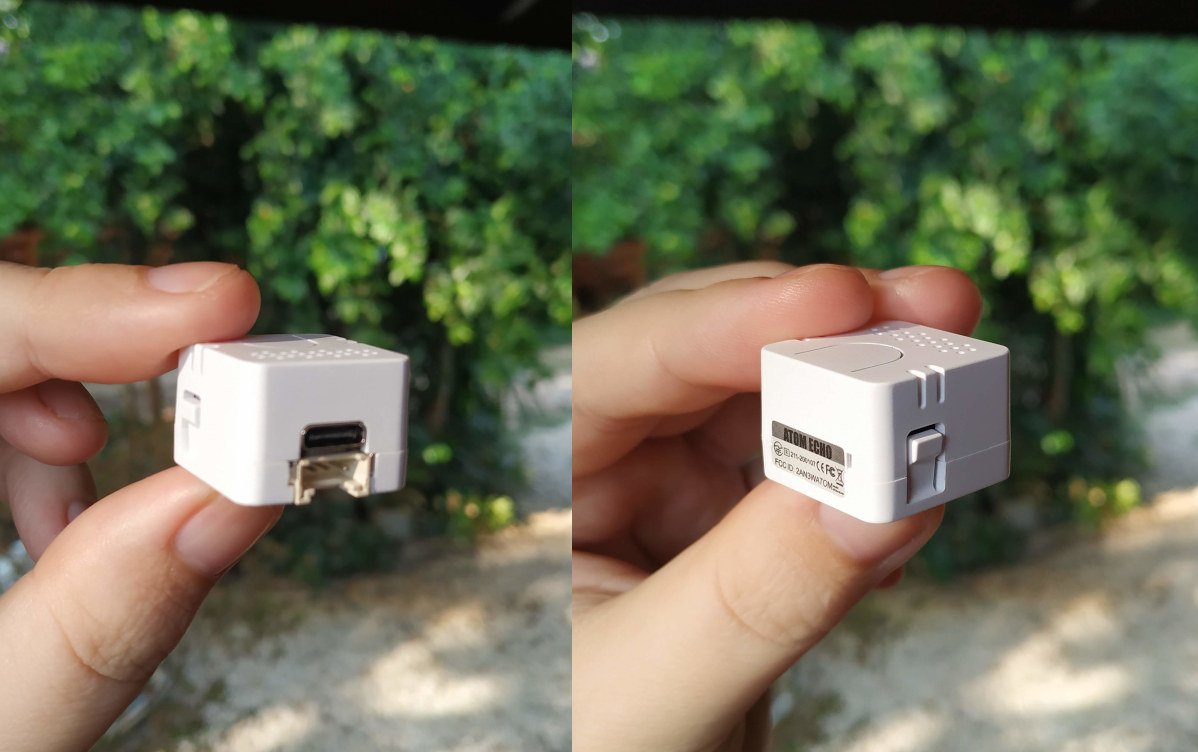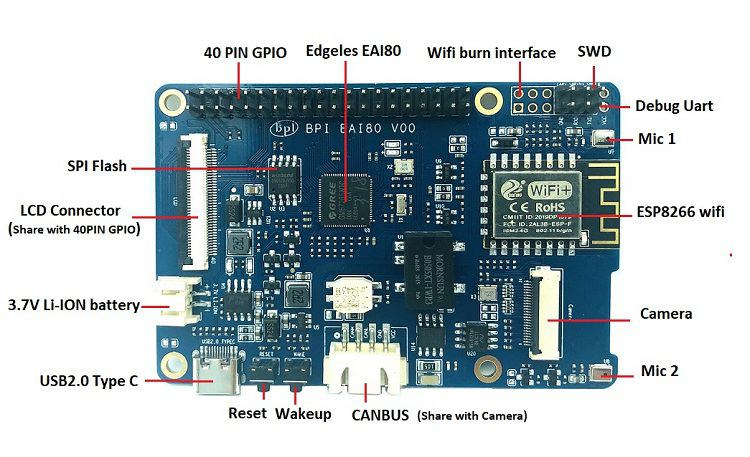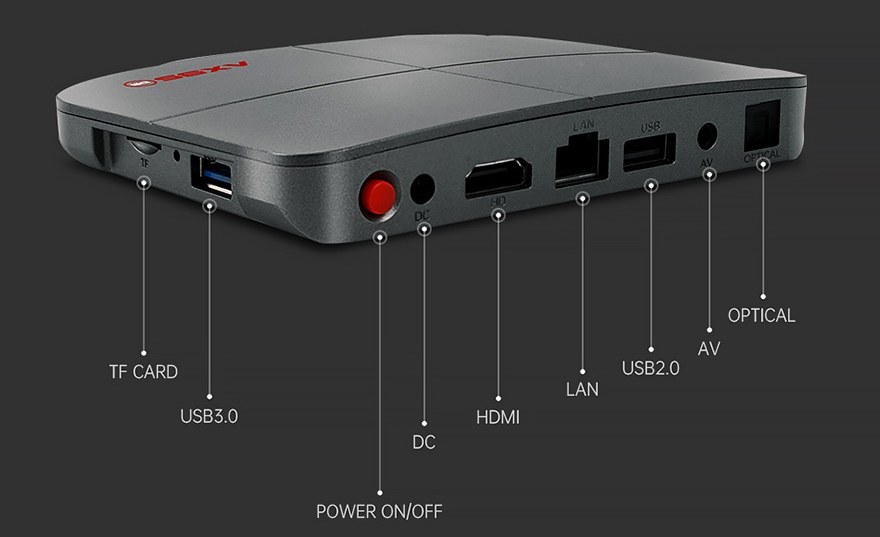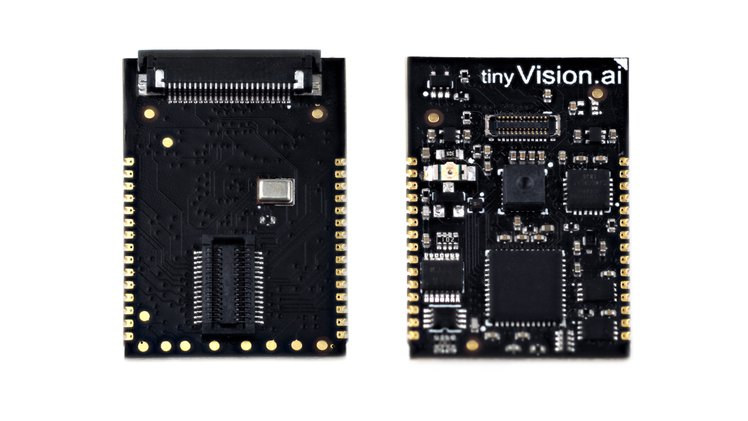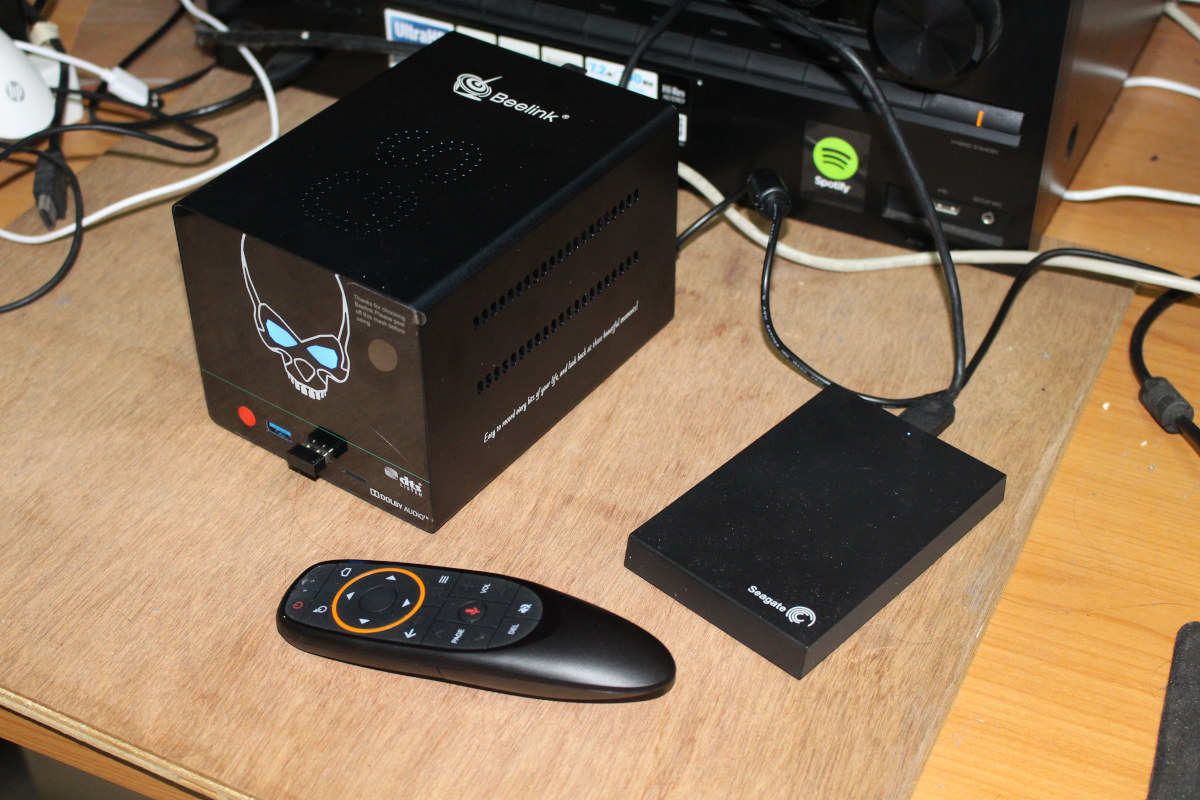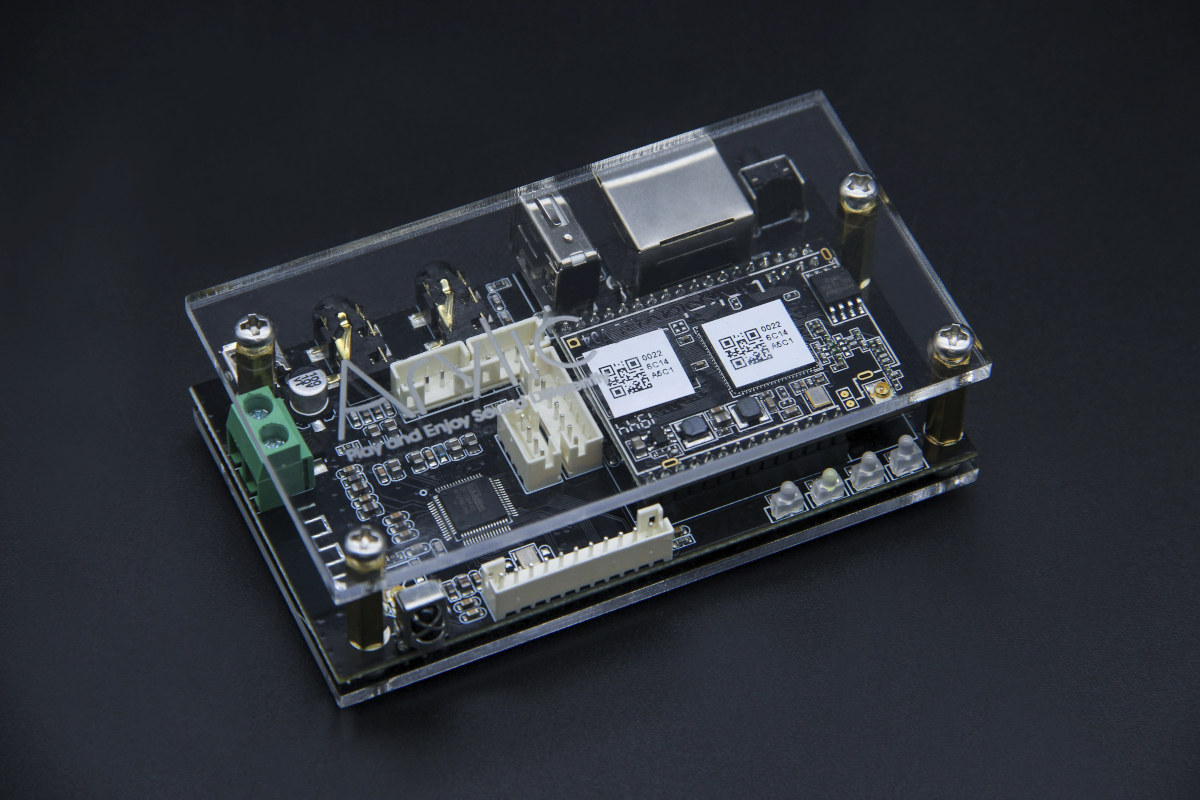Khadas Tone high-resolution audio board was introduced in 2018 for audiophiles wanting to design their own DIY HiFi system using Khadas VIM/VIM2 SBC, or connect it the USB version of the board to other single board computers. The company is now about to launch Khadas Tone 2 Pro mini desktop Hi-Fi system based on the same ESS ES9038Q2M DAC, but a faster XMOS XU216 capable of handling MQA decoding, and equipped with balanced RCA outputs, as well as an I2S USB-C port. Khadas Tone 2 Pro key features and specifications: Multicore MCU – XMOS XU216 with 16 real-time logical cores on 2x xCORE tiles; up to 1000 MIPS DAC – ES9038Q2M 32-bit stereo mobile audio DAC Amplifiers – 4x OPA1612 operational amplifiers, 3x buffer amplifiers Seamless hardware MQA decoding Native DSD512 decoding, PCM decoding up to 32Bit/384kHz. Left and right balanced RCA jacks for transmitting a balanced analog signal via […]
Qualcomm QCC5141 Earbud reference design supports TrueWireless Mirroring and Hybrid ANC
Qualcomm has recently unveiled an earbud reference design based on the company’s QCC5141 low-power premium-tier Bluetooth SoC that supports TrueWireless Mirroring and Hybrid Active Noise Cancellation (ANC). What are TrueWireless Mirroring and Hybrid ANC? Qualcomm TrueWireless Mirroring technology relies on only one earbud to maintain the Bluetooth connection with the smartphone, while the secondary bud mirrors the connected bud. If the connected earbud is removed, the secondary earbud assumes the connection with zero interruption. The technology enables both a better, more stable connection and lower power consumption Hybrid Active Noise Cancellation (ANC) is designed to provide high-quality immersive experiences and enable natural leak-through of noise to allow for awareness of surroundings. Qualcomm ANC is fully integrated into this QCC5141 chip to reduce the complexity, cost, and PCB space of adding ANC to earbuds and hearables. QCC5141 Earburd Reference Design Key features and specifications: WiSoC – Qualcomm QCC5141 single-chip Bluetooth SoC […]
Giveaway Week – M5Stack Atom Echo ESP32 Speaker
I reviewed M5Stack Atom Echo Bluetooth speaker powered by ESP32 earlier this year, and that will be the fifth prize of Giveaway Week 2020. It’s very much like a (low-quality) Bluetooth speaker, but you can program it with the Arduino IDE to do whatever you want. There’s also a Grove connector and I/O headers to control external modules. There’s no battery, so a USB-C cable is needed for power. To enter the draw simply leave a comment with your country and whatever else you’d like to say. If the country is missing, I’ll consider the entry void. Other rules are as follows: Only one entry per contest. I will filter out entries with the same IP and/or email address. Contests are open for 48 hours starting at 11 am (Bangkok time) every day. Comments will be closed after 48 hours. If comments are open, the contest is still going on. […]
$16 Banana Pi BPI-EAI80 Cortex-M4F Board Embeds AI Accelerator, WiFi Module
Last April, we wrote about Edgeless EAI-Series dual Arm Cortex-M4 MCU equipped with a 300 GOPS CNN-NPU for AI at the very edge as we had discovered the chip in an upcoming Banana Pi board. It turns out Banana Pi BPI-EAI80 development board powered by Edgeless EAI80 AI microcontroller has just launched for $16 on Aliexpress, or you could get a complete kit with a touchscreen display, a camera, and a USB power supply for $80. Banana Pi BPI-EAI80 development board specifications: System-in-Package – Edgeless EIA80 dual-core Cortex-M4F microcontroller @ 200MHz with 300GOPS AI accelerator (CNN-NPU), 384KB of SRAM including 256KB for CNN-NPU, and 8MB SDRAM Storage – SPI flash Display I/F – LCD connector up to 1024×768 Camera I/F – 1x DVP camera interface Audio – 2x onboard microphones Connectivity – 2.4GHz 802.11b/g/n WiFI 4 using ESP8266 module USB – 1x USB 2.0 Type-C port Expansion 40-pin GPIO header […]
Amlogic S905X3-B SoC Powers Android 9.0 TV Boxes with Dolby Audio License
Amlogic S905X3 quad-core Cortex-A55 processor has been found in various TV boxes and single board computers such as ODROID-C4 for about a year. But I’ve just been informed some new TV models come with Amlogic S905X3-B processor adding a Dolby Audio license. AX95 DB is one of those with the S905X3-B Android 9.0 TV box equipped with 4GB RAM, up to 128GB storage, HDMI 2.1 output up to 4Kp60, as well as Fast Ethernet, and USB 3.0/2.0 ports. AX95 DB specifications: SoC – Amlogic S905X3-B quad-core Arm Cortex-A55 processor @ 2.0 GHz with Arm Mali-G31MP2 GPU, Dolby audio license System Memory – 4GB DDR3 Storage – 64GB flash (32GB or 128GB optional), MicroSD card slt up to 32GB Video & Audio Output HDMI 2.1 up to 4K @ 60Hz or 8K @ 24Hz 3.5mm AV jack for composite video and stereo audio Optical S/PDIF with Dobly Digital audio support Video […]
Vision FPGA SoM Integrates Audio, Vision and Motion-Sensing with Lattice iCE40 FPGA (Crowdfunding)
tinyVision.ai’s Vision FPGA SoM is a tiny Lattice iCE40 powered FPGA module with integrated vision, audio, and motion-sensing capability with a CMOS image sensor, an I2S MEMS microphone and a 6-axis accelerometer & gyroscope. The module enables low power vision (10-20 mW) for battery-powered applications, can interface via SPI to a host processor as a storage device, comes with open-source toolchain and sample code, and is optimized for volume production. Vision FPGA SoM specifications: FPGA – Lattice iCE40UP5k FPGA with 5K LUT’s, 1 Mb RAM, 8 MAC units Memory – 64 Mbit QSPI SRAM for temporary data Storage – 4 Mbit QSPI Flash for FPGA bitstream/code storage Sensors Himax HM01B0 CMOS image sensor Knowles MEMS I2S microphone, expandable to a stereo configuration with an off-board I2S microphone InvenSense IMU 60289 6-axis Gyro/accelerometer I/Os 4x GPIOs with programmable IO voltage SPI host interface with programmable IO voltage Misc – Tri-color LED, […]
Beelink GS-King X Review with Android 9 – Video & Audio Playback, NAS/File Server Function, and Benchmarks
Last month I received Beelink GS-King X for review and started with an unboxing and teardown to check out the hardware. I’ve now had time to test the device with Android 9 including the file server function, a key selling point since of the device since it supports up to two 3.5″ SATA drives internally. A Tedious and Frustrating Start Eventually, I managed to boot the TV box and access the launcher, but it was no pleasure cruise. The first time, I connected the power, there was nothing at all, with the LED turned off, and no noise from the device. I thought the device was dead. The company asked me to check the power supply, and indeed a quick check with a multimeter confirmed it was dead despite the blue LED (on the power supply) implying the contrary. Nevermind, bad things happen, and the company sent me a new […]
Up2stream Mini & Pro v3 Audio Boards Add Bluetooth 5.0, USB Sound Card Mode and More
Rakoit launched Up2stream WiFi audio board in 2018, followed by Up2stream Pro board in 2019 with additional Bluetooth, Ethernet, and USB interfaces. Those boards are designed to bring network connectivity to speakers for audio streaming. The company has now launched updates with the launch of Up2stream Mini v3 and Up2stream Pro v3 connected audio boards. Both Up2Stream Mini v3 and Pro v3 have gotten similar updates with the ability to use the board as a micro USB sound card so you can directly plug it into a PC to make it work as a USB DAC. The boards also added SPDIF out, an ADC KEY input for external buttons, two I/O for extensions such as volume knobs. Up2stream Mini v3 now includes both WiFi and Bluetooth 5.0 connectivity. Shared key features and specifications of the boards are as follows: Audio Output – 3.5mm audio jack and header (shared), I2S & […]


